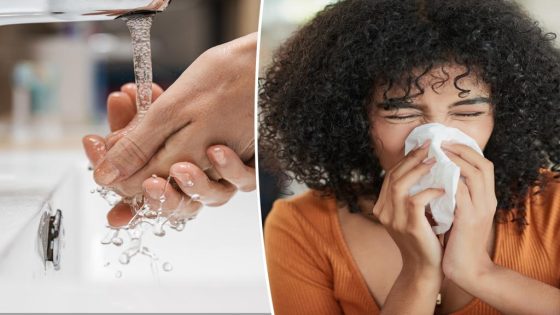A recent case highlights the dangers of brain infections linked to tap water. A 71-year-old woman tragically died after contracting Naegleria fowleri, a rare but deadly brain-eating amoeba, while using unboiled tap water for nasal rinsing. This incident serves as a stark reminder of the potential risks associated with seemingly safe water sources.
- Woman died from brain-eating amoeba infection.
- Naegleria fowleri can enter through the nose.
- Texas has high amoeba infection cases.
- Symptoms appear 15 days post-exposure.
- Boil water before nasal rinsing.
- Supervise children with sprinklers.
Experts emphasize that even if tap water is deemed safe for drinking, it can pose serious health risks when introduced into the sinuses. The Centers for Disease Control and Prevention (CDC) reported that amoebas can travel from the nose to the brain, leading to fatal infections. As of 2025-06-03 05:42:00, there have been 157 confirmed cases of Naegleria fowleri in the U.S. since 1962, with Texas and Florida among the states most affected.
This alarming case raises the question: how can we protect ourselves from such infections? While Naegleria fowleri is rare, its fatality rate is nearly 97%. Understanding how to avoid exposure is crucial.
- Boil tap water before using it for nasal rinsing.
- Use distilled or sterile water for sinus irrigation.
- Avoid submerging your head in warm freshwater.
- Supervise children playing with sprinklers or in shallow water.
As we move forward, it’s essential to stay informed about water safety and take proactive steps to protect ourselves and our families from potential health threats.

































